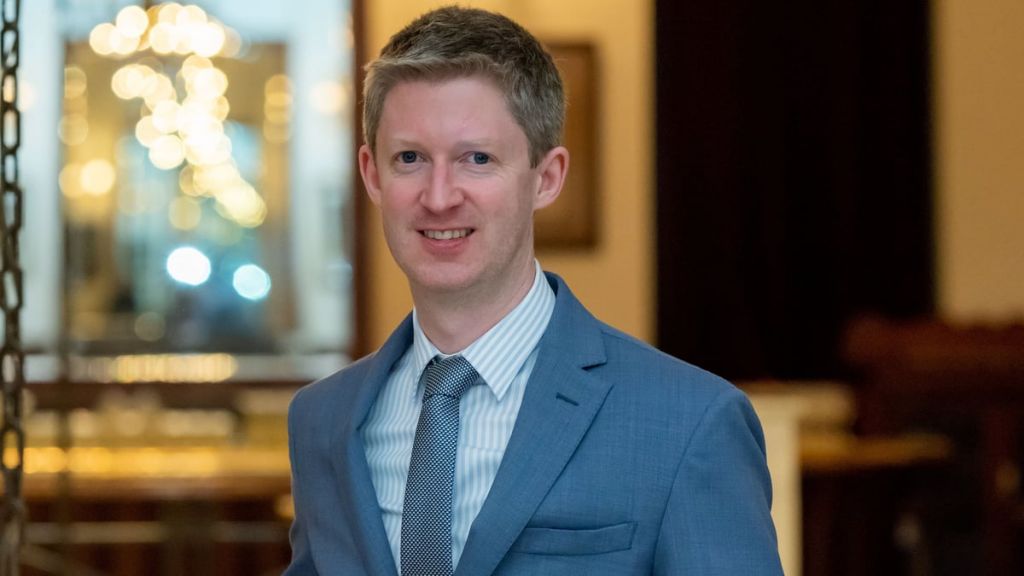
Ireland has long been a favoured destination for Indian students, primarily for its strong offerings in Science, Technology, Engineering, and Mathematics (STEM) fields. Speaking with the Free Press Journal about the current trends, Barry O’Driscoll, Regional Manager, India & South Asia for Education in Ireland, highlighted that while STEM remains the dominant choice, there is a growing effort to promote programmes outside of these technical fields.
FPJ: Why is the STEM sector the dominant choice for Indian students in Ireland?
Barry O’Driscoll: The courses in high demand at the postgraduate level include STEM subjects, particularly computing, data analytics, and data science. On the business side, we see a lot of MBA, management, and marketing students, while engineering programmes cover software, mechanical, industrial, and civil engineering. These fields remain popular among Indian students because of their clear career prospects and the high demand for technical skills in the job market.
FPJ: While STEM is popular, Is Ireland looking to attract students for other disciplines?
Barry O’Driscoll: Absolutely. We would like to attract more Indian students for social sciences, humanities, and liberal arts programmes. There is certainly a strong focus on STEM, but we’re working hard to broaden the appeal of other academic disciplines. Ireland's two-year stay-back visa provides opportunities for students to gain work experience regardless of their field of study.
FPJ: How has the number of Indian students in Ireland evolved over time, and what does the current landscape look like?
Barry O’Driscoll: Currently, there are close to 10,000 Indian students in Ireland, most of whom are enrolled in postgraduate programmes. This makes India one of the top three nationalities studying in the country, alongside the U.S. and China. The U.S. leads with around 12,000 students, followed by India with about 10,000 and China with approximately 5,000. While these numbers are encouraging, we believe there is room for further growth, particularly through student exchange programmes between India and Ireland.
FPJ: You mentioned student exchange programmes. Is this an area of focus for Irish universities when it comes to students from India?
Barry O’Driscoll: Yes, definitely. There isn’t much student exchange between Ireland and India at the moment, but this is something we’re looking to grow. Irish universities are keen to internationalise further, and we see a lot of potential in developing partnerships with Indian institutions. We’re also focusing on building awareness in India’s Tier 2 cities, such as Gurgaon and Lucknow, to extend our reach beyond the main metros.
FPJ: What are the top Indian states for students studying abroad in Ireland?
Barry O’Driscoll: Most Indian students in Ireland come from major metro cities like Delhi, Mumbai, Bangalore, Pune, and Chennai. We also see a strong presence from Kerala, particularly Kochi, and Telangana’s Hyderabad. While these regions dominate, we’re working to raise awareness in other areas like Punjab, Bengal, and Tier 2 cities. This is a key part of our strategy moving forward.
FPJ: How do Irish universities support Indian students beyond their academic experience, particularly in terms of employment?
Barry O’Driscoll: Irish universities provide strong support systems to help students transition from education to employment. Career offices and sector-specific advisors are available to guide students toward job opportunities. Throughout the academic year, universities organise career fairs where employers visit the campus to promote job vacancies. Additionally, students with post-study visas either find jobs on campus or by themselves, and over 1,000 multinational companies are headquartered in Ireland, creating many opportunities for graduates.
FPJ: How do universities help students prepare for the job market with master’s programmes that are only one year long?
Barry O’Driscoll: Given that most master’s programmes are only one year in duration, students are encouraged to start preparing for employment early on. Universities help with this by offering mock interviews, CV preparation, and career workshops. While no job is guaranteed, students are well-supported throughout their academic journey and beyond, making it easier to transition into the workforce.